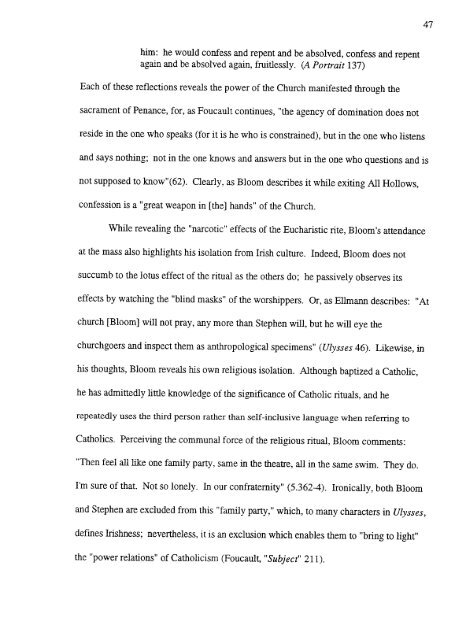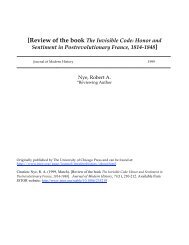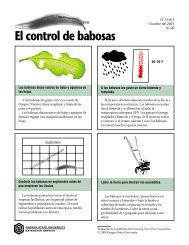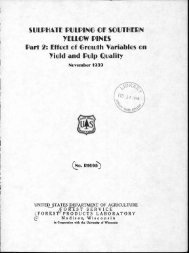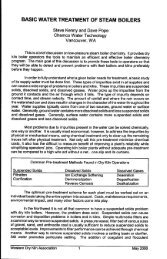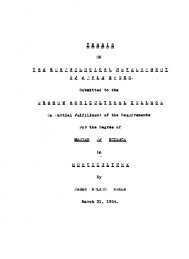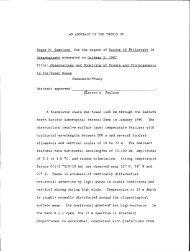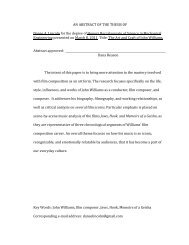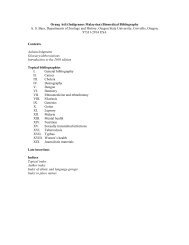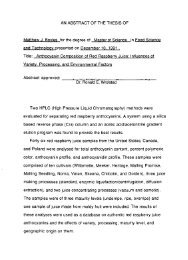Faubourg Saint Patrice - ScholarsArchive at Oregon State University
Faubourg Saint Patrice - ScholarsArchive at Oregon State University
Faubourg Saint Patrice - ScholarsArchive at Oregon State University
Create successful ePaper yourself
Turn your PDF publications into a flip-book with our unique Google optimized e-Paper software.
him: he would confess and repent and be absolved, confess and repent<br />
again and be absolved again, fruitlessly. (A Portrait 137)<br />
Each of these reflections reveals the power of the Church manifested through the<br />
sacrament of Penance, for, as Foucault continues, "the agency of domin<strong>at</strong>ion doesnot<br />
reside in the one who speaks (for it is he who is constrained), but in the one who listens<br />
and says nothing; not in the one knows and answers but in the one who questions and is<br />
not supposed to know"(62). Clearly, as Bloom describes it while exiting All Hollows,<br />
confession is a "gre<strong>at</strong> weapon in [the] hands" of the Church.<br />
While revealing the "narcotic" effects of the Eucharistic rite, Bloom's <strong>at</strong>tendance<br />
<strong>at</strong> the mass also highlights his isol<strong>at</strong>ion from Irish culture. Indeed, Bloom does not<br />
succumb to the lotus effect of the ritual as the others do; he passively observes its<br />
effects by w<strong>at</strong>ching the "blind masks" of the worshippers. Or, as Ellmann describes: "At<br />
church [Bloom] will not pray, any more than Stephen will, but he will eye the<br />
churchgoers and inspect them as anthropological specimens" (Ulysses 46). Likewise, in<br />
his thoughts, Bloom reveals his own religious isol<strong>at</strong>ion. Although baptized a C<strong>at</strong>holic,<br />
he has admittedly little knowledge of the significance of C<strong>at</strong>holic rituals, and he<br />
repe<strong>at</strong>edly uses the third person r<strong>at</strong>her than self-inclusive language when referring to<br />
C<strong>at</strong>holics. Perceiving the communal force of the religious ritual, Bloom comments:<br />
"Then feel all like one family party, same in the the<strong>at</strong>re, all in the same swim. They do.<br />
I'm sure of th<strong>at</strong>. Not so lonely. In our confr<strong>at</strong>ernity" (5.362-4). Ironically, both Bloom<br />
and Stephen are excluded from this "family party," which, to many characters in Ulysses,<br />
defines Irishness; nevertheless, it is an exclusion which enables them to "bring to light"<br />
the "power rel<strong>at</strong>ions" of C<strong>at</strong>holicism (Foucault, "Subject" 211).<br />
47


